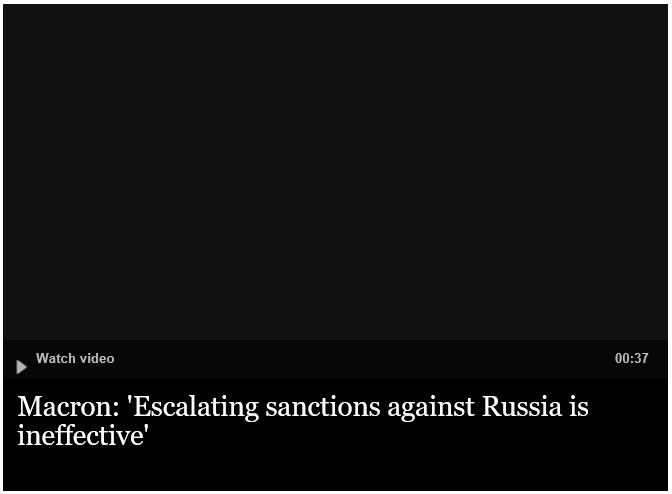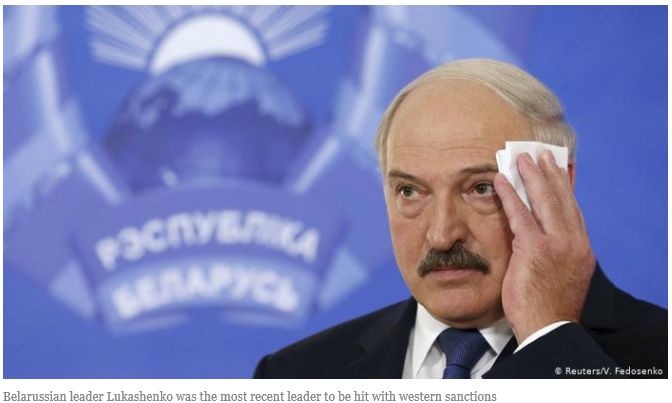
When words are too weak and war is too costly, sanctions are increasingly the tool countries use to punish bad behavior around the world. What they achieve, however, often seems to fall short of their stated aims.
A dictator brutalizes his people. A country attacks its neighbor. A regime pursues nuclear weapons. These are common crises that threaten peace, stability, and national interests. How to confront them has long vexed policymakers, especially in the US and its allies, which peg their global credibility to safeguarding rules-based relations and free trade.
The options available to them are often more bad than good. A strongly worded condemnation may be worth little more than the paper - or tweet - it's written on. At the other extreme, armed intervention risks blood and treasure without certainty of success.
That leaves sanctions - an attractive, albeit imperfect, middle ground.?
"They are the alternative between words and war," John Smith, a former top US sanctions official, told DW. "Every president, Democrat or Republican, and every Congress, Democrat- or Republican-led, loves the sanctions tool."
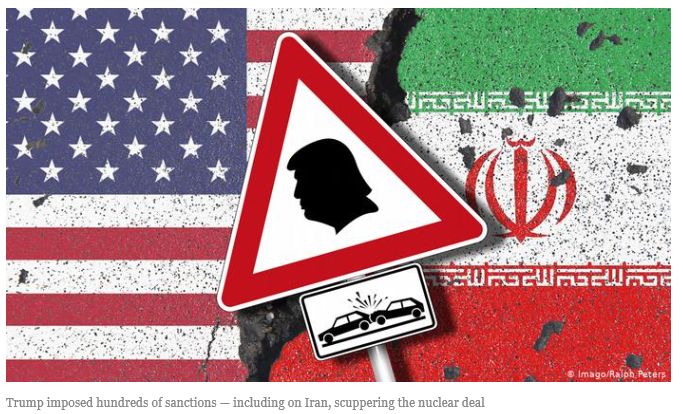
Then came Donald Trump, and sanctions "shot through the roof," he said. In 2015, when Smith became director of the Treasury Department's Office of Foreign Assets Control (OFAC), which oversees most US sanctions, there were more than 500 sanctions designations. By the time he left three years later, that figure had nearly tripled, according to data compiled by the Center for a New American Security.
Sanctions: Eye of the beholder
Trump's sanction frenzy underscored a long-standing weakness in using them. If ill-defined and poorly constructed, they can have little or adverse effect. Trump's unilateral "maximum pressure" campaign against Iran undermined the multilateral nuclear deal from 2015, which put Iran's nuclear program on the table for the first time. In unleashing sanctions without a clear objective, Iran had little incentive to cooperate.
"The criticism of the Trump administration was that sanctions were often used in a knee-jerk fashion, without the orderly considered process of determining what would actually be a deterrent," Smith said.
As the tip of the US sanctions spear, OFAC plays a prominent role in that process, doing for sanctions what the military does for conflict: advising the president on what targets make sense to hit and what the fallout could be, and then carrying out the president's decision.
Sanctions cover a large space of foreign relations. They can target individuals, economic sectors or, in their most blunt form, an entire country or area.
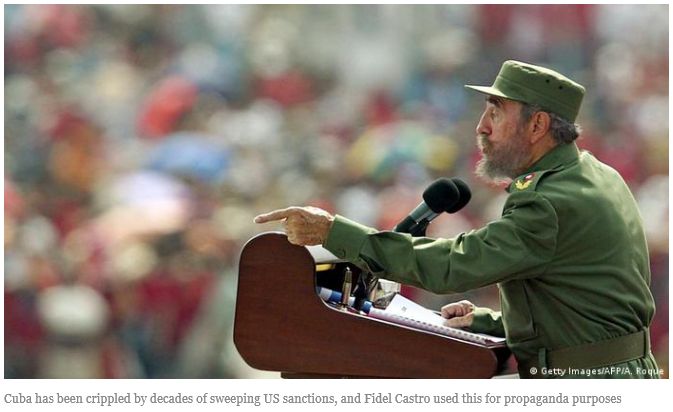
Sanctions are not just economic, although the asset freezes and commercial penalties overseen by OFAC are among the most common. There are also diplomatic sanctions, such as travel bans; political ones like boycotts and divestment; and those that prohibit arms sales or restrict access to certain technology. Tariffs, too, came to be seen as a type of sanction, as Trump turned to them when looking to punish China and the European Union in trade disputes.
The shape-shifting nature of sanctions is one reason evaluating them can be so difficult. Like war, sanctions can have unintended consequences and cause collateral damage. The target may react unpredictably or prove to be more resilient than anticipated.
"It's a complicated exercise to elicit change and to exert influence in the desired direction," Sascha Lohmann, a researcher at the German Institute for International and Security Affairs (SWP), told DW. "This usually gets forgotten, that this kind of social engineering is really difficult."
Today's failure is tomorrow's success
Cuba, for example, has been crippled by decades of sweeping US sanctions, but Fidel Castro went to the grave with his communist revolution intact. His success was thanks not only to Soviet and Chinese patronage, but also to his ability to suppress dissent while rallying the public around the idea of Davidian Cuba defying the American Goliath.
The uncertainty makes sanctions "more like an art than a science," Lohmann said, as policymakers try to determine what kind of pain to inflict on a country, and how much, for it to buckle. If they get it wrong, they can hurt broad sections of society and strengthen the intended target - the economic equivalent of killing civilians while bombing terrorist leaders.
"You could flush the Russian economy down the drain in two or three months with certain sanctions, but that's like saying the surgery was successful but the patient is dead," Lohmann said.?
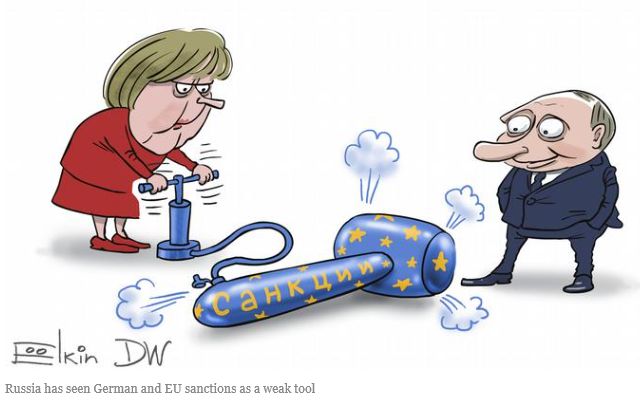
That does not mean sanctions never work, and success is itself relative. Sanctions alone are unlikely to reverse Russia's annexation of Crimea and its aggression in eastern Ukraine, nor get Alexander Lukashenko to release his grip of Belarus, nor end China's repression of its Uyghur Muslim minority. Yet they can be the line in the sand that prevents bad actors from acting even worse - or others from following their example.
"It always depends what you mean by 'work,'" Lohmann said. "Signaling disapproval, this is really effective."
EU sanctions, Lohmann said, are often more about promoting unity among the bloc's bickering 27 member states than changing the target's behavior. From that perspective, sanctions can be considered a success. Democratic governments have additional electoral pressures "to act, or there's pressure to appear as if you're acting," he said.
US sanctions on Nord Stream 2 could also be seen as a success - not for stopping the project, as President Joe Biden acknowledged when he recently decided against applying additional ones, which could have harmed allies. But they made the pipeline a political issue in Germany in an election year. German critics of the pipeline now include members of both Chancellor Angela Merkel's conservative party and her government, who fear the risks of damaging relations with the US outweigh the benefits of more Russian gas.
It is one example of how sanctions, or the threat of them, can influence the behavior of both allies and adversaries. Smith, who now advises clients on these issues for the law firm, Morrison & Foerster, is convinced western sanctions against Russia halted its push into Ukraine and saved lives, even if the conflict continues.
"It's hard for me to label a successful sanctions program versus a failure, because sanctions are a patient person's tool," he said. "You're trying to keep someone in check."

A better sanction
The problem with sanctions, therefore, is not so much the sanction itself, but how the tool is perceived and used. United Nations sanctions, or ones coordinated with other countries, can be the hardest to get support for, but are often the most successful.
"Sanctions are best when they're multilateral," Smith said. Otherwise, it can be relatively easy for the target to evade them, especially if the two sides have few commercial or political ties for sanctions to hit.
That was the chief complaint of Trump's critics: Many of his sanctions were all stick, no carrot, and came with little coordination. For sanctions to work, they need to be part of a larger strategy that includes incentives, such as diplomatic support or financial aid, Smith said. If behavioral change is the goal, sanctioned countries need to see the path that gets them there.
"The people who think that sanctions are the panacea to all of the world's problems are really going to be misguided or disappointed," Smith said. "Sanctions are supposed to be one tool."
In other words, a sledgehammer can knock down a wall, but it is probably a bad choice for hanging a picture.
While you're here: Every Tuesday, DW editors round up what is happening in German politics and society, with an eye toward understanding this year's elections and beyond. You can sign up here for the weekly email newsletter Berlin Briefing, to stay on top of developments as Germany enters the post-Merkel era.
Originally published by Deutsche Welle 4 June 2021.
Because of the generality of this update, the information provided herein may not be applicable in all situations and should not be acted upon without specific legal advice based on particular situations.
© Morrison & Foerster LLP. All rights reserved

